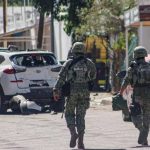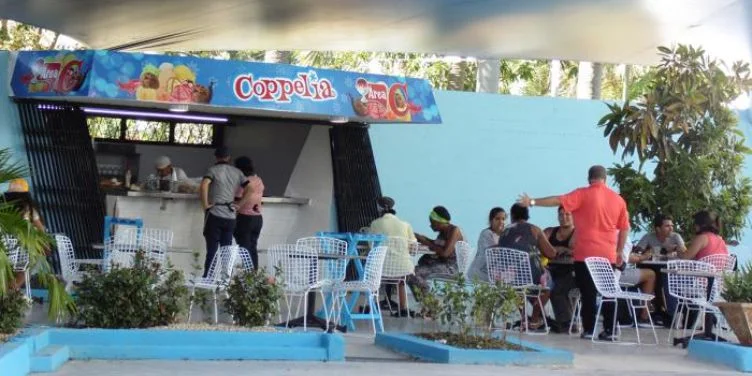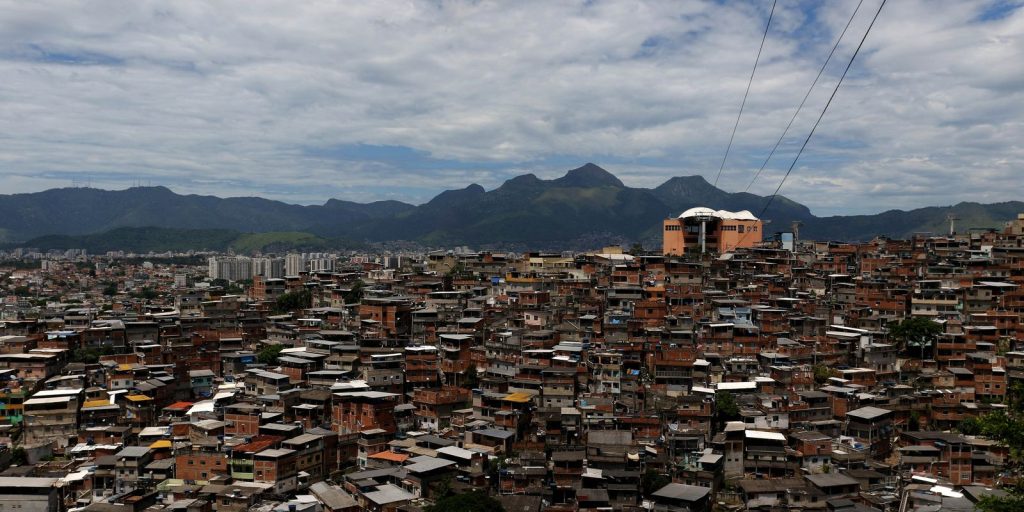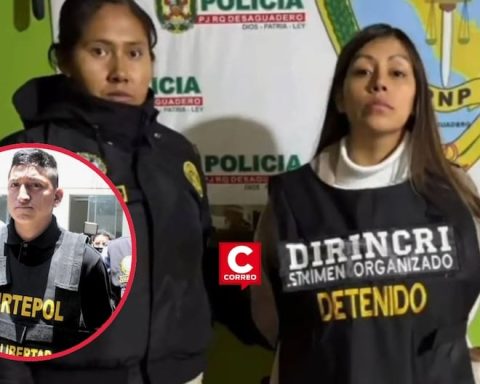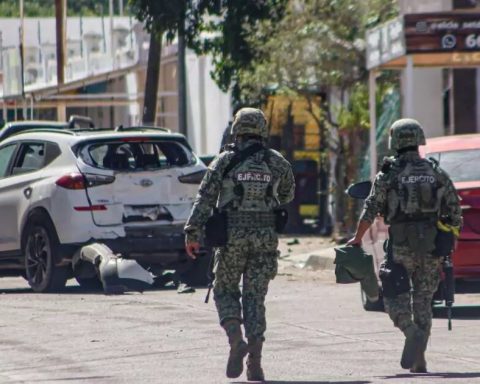The journalist’s statements, made in front of the remains of the victims, were described as a serious lack of respect towards the affected families.
News Colombia.
In recent hours, the country has witnessed a growing wave of criticism and indignation following the controversial statements of Néstor Morales, Blu Radio journalist, in an interview with Rafael Núñez, teacher and leader of memory initiatives in Medellín.
The interview, broadcast on Tuesday, January 14, addressed issues related to the mural “Las Cuchas Hacen Razón,” an artistic work that stands as a tribute to the victims of forced disappearances that occurred in Comuna 13 of Medellín during Operation Orion.
However, the situation became even more controversial when Morales, in a questioning tone, suggested that the skeletal remains found in La Escombrera could have been buried by the victims’ own relatives.
La Escombrera, located in Commune 13 of Medellín, has historically been a space loaded with pain and memory.
Related news: La Escombrera: The largest mass grave in Latin America
For years, it was used as a rubble dump, but inside the remains of many victims of forced disappearance were found, some of whom are believed to have been detained and disappeared in the context of the violent Operation Orion of 2002, when the Army Colombian fought against illegal armed groups in the area.
Since then, a search and complaint process has emerged by relatives of the victims, who have pointed out La Escombrera as one of the places where their loved ones could be buried.
The interview that sparked controversy
During the conversation, Morales, when questioning Rafael Núñez about the remains found at the site, posed a question that quickly generated controversy: «Could you swear, assure, that those people found in La Escombrera were not buried there by their relatives?«.
This suggestion that the victims’ relatives could have been responsible for the burials has been met with great indignation by both those interviewed and the audience.
The question was interpreted by many as a minimization of the pain of mothers and fathers who, for years, have struggled to find their missing sons and daughters, some of whom believe they were victims of systematic state violence.
Rafael Núñez responded with visible indignation: “How come you’re telling me that possibly a relative went and took the remains of his children and buried them in a place in the city?”.
The response of Morales, who insisted that “Nobody knows where those bodies come from.«, was perceived as a lack of respect and an attempt to discredit the struggle of the victims’ relatives.
Reactions and criticism
Morales’ phrase has unleashed a wave of criticism on social networks, where various sectors of society have been deeply affected.
The comments point to the insensitivity of the journalist, whom many accuse of re-victimizing the families of the disappeared by pointing out that the victims could have been buried by their own loved ones, instead of recognizing the context of state and paramilitary violence that underlies forced disappearances in Colombia.
Even colleagues of Néstor Morales have expressed their rejection of his words. Several journalists and social leaders in Medellín and the rest of the country have classified his statements as a “canallada” and an attempt to distort the reality of the events that occurred in Commune 13.
President Gustavo Petro, for his part, has spoken out about the controversy in terms of solidarity with the victims, calling those who have promoted the erasure of commemorative murals in the city fascists.
Denialism to the maximum. Duque’s brother-in-law trying to erase a crime against humanity, caused by Duque’s friends pic.twitter.com/MFxcVOxeym
— Gustavo Petro (@petrogustavo) January 15, 2025
Complaints for “censorship of artistic expressions and Historical Memory”
In addition to Morales’ questioned words, the issue of censorship of the murals in Medellín continues to generate debate. The mural “Las Cuchas Hacen Reason” had been erased by order of the mayor of Medellín, Federico Gutiérrez, which provoked rejection from sectors of society who consider that the elimination of these works is a way of silencing the memory and denunciation of the victims.
According to Rafael Núñez, one of the promoters of the mural, the action of erasing these murals is an attempt to “wipe memory”an idea that has been supported by various social and academic groups.
The mural, which included the figure of a victim’s mother along with the phrase “I gave the order” and a representation of former president Álvaro Uribe, had become a symbol of resistance to oblivion.

Its removal generated great controversy, fueled by Morales’ statements about the murals, which disqualified the mural.
After being erased, they painted again:
THE GUYS ARE RIGHT. #TheCuchasHaveRight #TheCuchasWereRight pic.twitter.com/xePs0hg6ZP
— Esteban Agudelo (@CHAVOCENSURA) January 15, 2025
Many Internet users outraged:
I searched the RAE for words not to tell @NestorMoralesC that he is a SON OF A BITCH. He is a beast, a brute, cruel, rude, mean. Stating that relatives can take their loved ones to bury them in the Escombrera to accuse the subjudice Uribe is nonsense. pic.twitter.com/W7a9Wp7buM
— MaríaV FallonM/GIDH (@mariavfallon) January 14, 2025
What Néstor Morales did on the air today is one of the most violent, denialist and re-victimizing things I have ever heard in my life. According to him, the bodies that are appearing in La Escombrera were buried by their own relatives.
In a serious country, that man should resign tomorrow. https://t.co/uigsdthKcz
— César García Garzón (@elojodelsalmon) January 15, 2025
Néstor Morales insinuating that it was the same mothers who put the corpses of their children in the Escombrera.
Bad there, @NestorMoralesCyou owe an apology to those women who are broken today because of a state policy that stole their hope.… pic.twitter.com/oHXVCr1oay
— Maria Niny Echeverry (@Marianiniecheve) January 15, 2025
pic.twitter.com/yxvnwIGfhb Saying that in La Escombrera they are going to bury bodies to blame Uribe is one of the meanest, lowest and most miserable things that can be said. The ‘JOURNALIST’ Néstor Inmorales said it. Néstor Morales, perfect example of how not to do journalism: biased,…
— Elizabeth Ortíz (@ElizbethCristi7) January 15, 2025
Must read:









